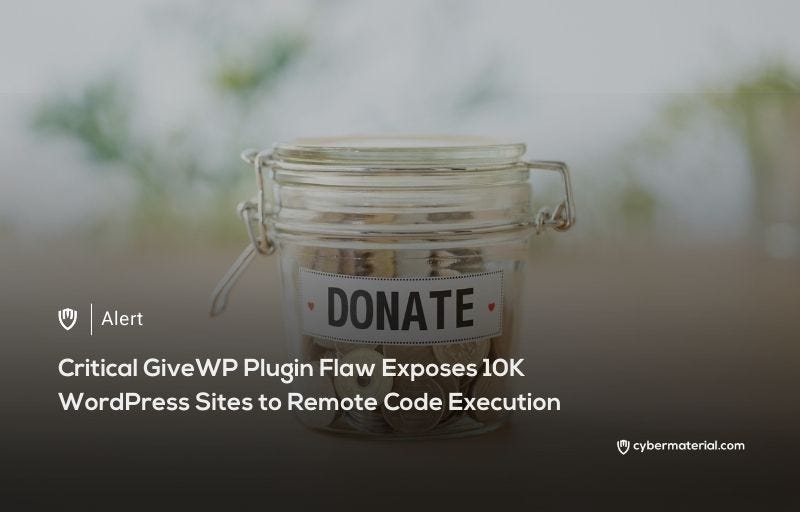
A critical security vulnerability in the GiveWP Donation Plugin, tracked as CVE-2025-0912, has exposed over 100,000 WordPress websites to unauthenticated remote code execution (RCE) attacks. The flaw…

A critical security vulnerability in the GiveWP Donation Plugin, tracked as CVE-2025-0912, has exposed over 100,000 WordPress websites to unauthenticated remote code execution (RCE) attacks. The flaw…